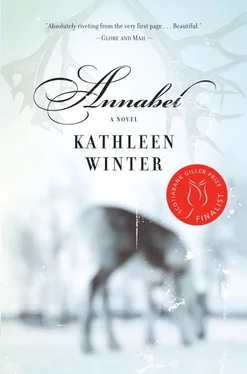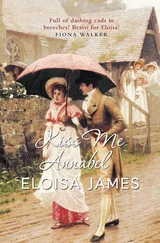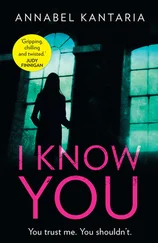Many of the bridges on Thomasina’s postcards were incomplete. They had been destroyed by centuries or had vanished altogether and existed now only in the frail form of drawings on the postcards. Jacinta liked this. The fragments reassured her. Her own life felt full of incomplete pieces. She remembered the Bible story where Christ gathered fragments of crusts, small pieces of fish, and somehow made them whole again, enough to feed thousands. She liked thinking about the fragments more than she liked the story of the eventual miracle. There was something sacred about the fragments, about hunger, about unfinished bridges or bridges that had crumbled. She did not like the postcard that showed a Stone Age bridge in Somerset in England, where Neolithic men had dragged massive slabs onto boulders that still stood. There was something brutal about their permanence that made her feel afraid, and she wished Thomasina had not sent that card.
“Where’s the one from Turkey?” Jacinta loved that the broken Turkish arch was the oldest stone arch left standing in the world.
But the bridge Wayne loved was Italian. It was Florence’s Ponte Vecchio. “I didn’t know a bridge could have buildings on it, and shops full of gold.” He loved how there were people in the buildings right on the bridge, with light in the windows that reflected on the water. He had not known you could live on a bridge, but Thomasina wrote that you could.
“I want to live on a bridge like that,” Wayne told his mother. “I want to hang a fishing line out the window and catch a fish.”
“There was music on the Ponte Vecchio,” Thomasina had written. “I gave the violin player some coins and he played something he said he had composed.”
Jacinta sat in Treadway’s armchair with Wayne and they read to each other from copies of A. A. Milne and Lewis Carroll that Jacinta had brought to Labrador in the last corner of her trunk. To Jacinta all of this felt like what it must mean to have a daughter, but she kept this feeling pooled within herself, and she did not know what would cause the most harm: to let that pool become a free-flowing stream or to starve it of water gradually, so that one day it might dry completely.
In grade five Wayne became silent until spoken to because that was the way he learned to act with his father. His teachers relied on him to pull the string that displayed the world map, and to clean the filter on the tank that held the neon fish and fire newts. They did not know he did not like cleaning the filter, and if they knew he read novels inside his open math book they said nothing, because he did his homework and managed to get seventies on his tests. They did not know he adored a girl in the first row named Wally Michelin and would have done anything in this world to be her friend.
Wally Michelin had been born on the third of June, which was why her mother had named her after Wallis Simpson, whom Edward VIII had married on that date after renouncing his throne. Wally Michelin had announced this in kindergarten, when the teacher, Miss Davey, asked her where she got her name, and she had said it proudly, her hair black and her face the colour of cream with freckles all over it, and high walking boots on her like something out of an American catalogue. Wally Michelin had stomped through kindergarten and grades one and two with a certainty Wayne found fascinating. The day she got Coke-bottle glasses with black rims, such glasses immediately became a cool thing, not a thing to be laughed at. When she broke her arm falling off the slide in the playground, she had more signatures on her cast than anyone in Croydon Harbour had seen on a cast before. Her father had taken her on a trip to Quebec, and every time they stopped for pie all the waitresses and truckers signed it, and one of the signatures was in rainbow ink. Wally was the first one in the class to get mumps, chicken pox, and measles, and the only one to get whooping cough, which could kill you. She had a first cousin who lived in Boston, and her bologna sandwiches were always Maple Leaf brand. She was the champion marble player of Croydon Harbour Elementary and had an oversized green dragon and a rare black orange flare. Wayne was in love with her from the moment he heard her crumbly voice. So in love he wished he could become her. If there was a way he could make himself into a ghost without a body — a shadow — or transparent like the lures his father used to catch Arctic char, he would have done it. He would have transformed into his father’s lure, slipped under Wally Michelin’s divinely freckled skin, and lived inside her, looking through her eyes.
There was nothing pretty about Wally Michelin, but nobody noticed this for a long time. To Wayne it was apparent that nothing could make Wally doubt her own self, not even the advent of Donna Palliser.
Donna Palliser came to the school in the middle of grade five. She took one look around her and decided who had to be taken out and who could stay. She had a slow way of turning her head and giving a poisonous look to anyone she was taking out. Sometimes the look alone took the person out and that person retreated to the background, and sometimes Donna Palliser had to take action, which she did in the playground when none of the teachers was looking. She did not have a strong body; she bullied mentally, not physically, and the first and most important person she wanted to take down was Wally Michelin, who had been queen before Donna got there, and whom Donna could see was the kind of queen who ruled by natural nobility and not by cunning or cruelty or clever resolve. Wally was easy to take down because she did not care if she was queen or not. Wally was not going to move. The other girls would move. The other girls would swear allegiance to the new queen, and there would be a ranking order, and no one would care about Wally’s green dragon or orange flare, which they had genuinely admired. They would care about Hush Puppies crepe-soled Mary Jane shoes instead, and angora boleros, and having a ballpoint pen with pink ink, and Sweet Honesty perfume ordered from the Avon catalogue.
When Donna had been in town one month, she had a housewarming party and gave out invitations from the Details and Designs Emporium in Goose Bay. She gave invitations to everyone when Miss Davey was looking, but at recess time she told certain girls that they were not invited. All the boys were invited, but she was uninviting certain girls. She uninvited Gracie Watts, who wore the same wool sweater every day, and she uninvited Agatha and Marina Groves, the red-headed twins who were too fat to get through the door on the school bus and had to be brought to school in their father’s truck, and she uninvited Wally Michelin, telling her that her mother said she could invite only eighteen people and Wally was number nineteen.
Wayne did not even put his invitation in his bookbag. It was pink with YOU ARE INVITED embossed on the front, and it had scalloped edges. He slid it into his desk, and when the bell rang, he threw it in the garbage.
The party was in three days, and by the second day the girls in the class had reconciled themselves to the idea that it was all right that they had been invited and Gracie, the Groves twins, and Wally had not. They told each other, and themselves, that Gracie, the twins, and Wally did not care, and that anyone who cared had been invited, so it was all right. The whole class talked about Donna Palliser’s party, even the boys, because she told them her parents would not be in the rec room where the party was. The parents would be upstairs and were leaving Donna in charge, and there was going to be punch, which Donna said would have some real champagne in it from the back of her parents’ liquor cabinet.
Wayne had no intention of going to that party, but on the evening itself Treadway took him to the Hudson’s Bay store to get mousetraps. They were standing by the shelf discovering there was only one real mousetrap left when Roland Shiwack came up the aisle with his son Brent and picked up some number-two sandpaper and a couple of cans of WD-40.
Читать дальше












